Study maths in France - 8 institutions
-
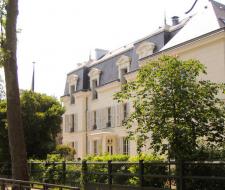 One of the best bilingual schools in France
One of the best bilingual schools in France FranceParisCurrently watching: 9from 29314.00 € / yearApply with documents
FranceParisCurrently watching: 9from 29314.00 € / yearApply with documents -
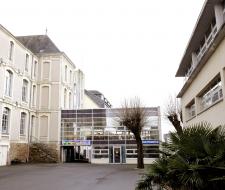 from 6550.00 € / semesterApply with documents
from 6550.00 € / semesterApply with documents -
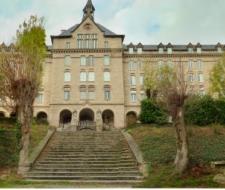 from 6000.00 € / semesterApply with documents
from 6000.00 € / semesterApply with documents -
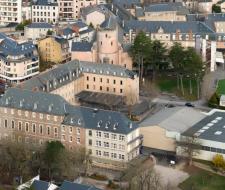 from 7090.00 € / semesterApply with documents
from 7090.00 € / semesterApply with documents -
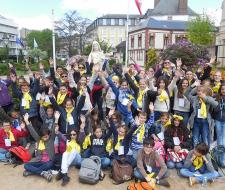 from 7000.00 € / semesterApply with documents
from 7000.00 € / semesterApply with documents -
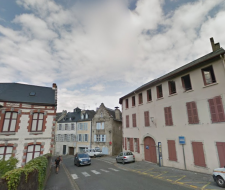 from 5845.00 € / semesterApply with documents
from 5845.00 € / semesterApply with documents -
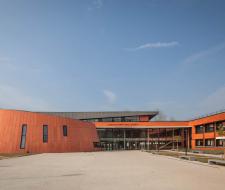 from 9100.00 € / semesterApply with documents
from 9100.00 € / semesterApply with documents -
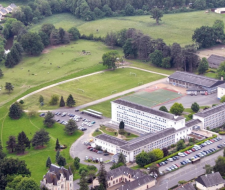
 FranceAngersCurrently watching: 2from 7600.00 € / semesterApply with documents
FranceAngersCurrently watching: 2from 7600.00 € / semesterApply with documents
Alternative destinations
Education information
The secondary private schools in France are popular not only among the residents, but also foreign students. Prestigious European education, high academic standards, excellent equipment of buildings and the extraordinary history and culture of the country – these are the determining reasons for the popularity of elite private schools in France among foreign students. You can study both in English (under the International Baccalaureate program, GCSE, A-level as in England) and in French (French Baccalaureate, as in private schools in Switzerland, for example).
France is one of the leading mathematical powers, with a long mathematical tradition and a thriving mathematical school. The list of great French mathematicians was opened in the XV century by an algebraist (and a cryptographer at the court of Henry IV) Viette; in this list are such well-known names as Pascal, Descartes, Dalembert, Cauchy, Lagrange, Laplace, Galois, Poincare, Borel, Lebesgue. Of the four Fields medals awarded in 1994, three were received by the French (J. Bourgoin, J.-K. Yoccoz and J.-P. Lyons).
Maths programme of study in France for foreign students
According to the legislation, education in France is compulsory from 3 to 16 years. Secondary education (enseignement secondaire) is divided into three stages:
- Studying at school begins at the age of 6: at the initial stage of secondary education, children study a standard list of subjects such as reading, writing, and the basics of mathematics. The training schedule has a semi-intensive load.
- The first stage (le Collège) begins at the age of 11 and lasts for 4 years. At this time, teenagers study a set of subjects standardized for all schools (French, foreign language, art, music, art history, physical education, geography, natural sciences, mathematics, computer science). Additionally, they have the opportunity to choose elective classes in the following areas: foreign languages, languages and culture of Europe, languages and culture of antiquity, choral singing. At the end of the fourth year of study, all students take an exam, after which they receive a diploma of completed secondary education.
- The second stage (le Lycée) is also mandatory for most students, since the first one ends at the age of 15. The studying lasts 3 years. High schools are divided into three types: general, technical and professional. The first academic year is the same for general and technical schools: students are taught the same set of subjects as at the initial stage of secondary school. In addition, they choose one elective subject from the list of general subjects (languages, art, physical education, ecology and agronomy) and one from the list of technical subjects (management, healthcare, mathematics, natural sciences, engineering).
Study GCSE maths in France – specifics of studying
GCSE (General Certificate of Secondary Education) is a secondary school program for children aged from 14 to 16. Duration of studying is 2 years (10th and 11th grade). At the end of the second year, children take an exam in each subject. The choice of a school for further study in high school depends on the results of final exams.
The curriculum consists of compulsory subjects and elective subjects. Their list may vary from school to school in France. The basic courses include: English, Literature, Mathematics, Biology, Chemistry, physics, history, geography and one foreign language. In addition to them, the student chooses 3-4 subjects. This can be, for example, astronomy, art, programming, business disciplines, statistics or psychology.
GCSE Maths is the main subject in all schools in France. Mathematics is a fundamental science, the study of mathematics allows the students to develop mental abilities, analytical, critical, abstract thinking, the ability to predict and generalize, trains memory and develops quick thinking.
Study A-level maths in schools in France
A-level is a British exam of Sixth Form stage. The program is designed for students aged 16-18, who want to continue studying at the university. This stage is not considered mandatory, general secondary education is a GCSE diploma in France (14-16 years old). A-level is already a full secondary education. Usually the course is designed for 2 years, sometimes they give you the opportunity to complete a year (accelerated course), but you need to try very hard and prove that you will pull the intensity.
A-level Math is designed for 90 minutes and is divided into 4 sections:
- Core mathematics includes: equations, simplifications, logarithms, derivatives, etc.;
- Futher pure mathematics is already "pure" mathematics, closer to the highest: complex numbers, series, matrices and other in—depth concepts;
- Statistics is probability theory and mathematical statistics;
- Decision mathematics — "mathematics of decision making", a symbiosis of discrete mathematics and solving problems on graphs.
Enrolment requirements to study maths in private schools in France for foreign students
In order to enroll in maths schools in France, the foreign students will need not only a standard list of documents, but also certain language and academic knowledge.
The main list of required documents for the submitting family includes the following ones:
- A copy of the passport;
- Annual grades for the last 2 academic years + quarter/trimester grades for the current academic year;
- Certificates of language proficiency (preferably as new as possible so that they are relevant);
- Letters of recommendation from teachers of English and mathematics, sometimes you can also from the director;
- Motivation letter (not always);
- Registration forms;
- Skype interview or personal visit to an educational institution.
In addition to the above list, the students are also required to take internal tests in mathematics and English to determine whether the children are sufficiently well prepared at the time of admission.



